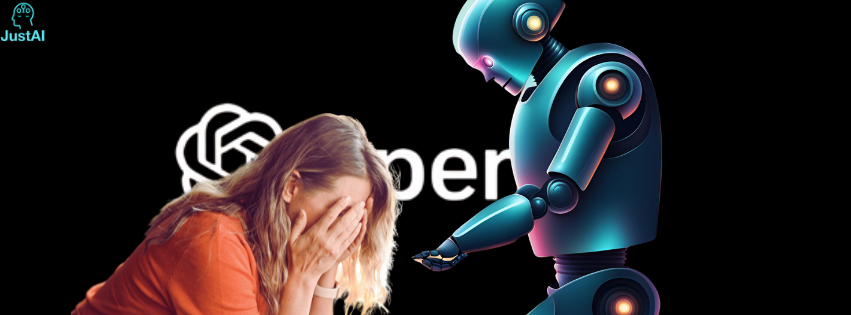Key Highlights:
- Concerns about Users Developing Emotional Attachment to the AI: The newly introduced voice mode in ChatGPT-4o by OpenAI, which strives to simulate human speech and emotions, now has people fearing that emotional attachment to the AI is unethical or immoral and this raises concerns for the social and emotional well-being of the users.
- Psychological and Social Effects: The new AI has human-like conversational skills; human-to-human engagement and social norms which could deeply affect people, where it may even lead to emotional dependence on such AI for a friend.
- Ethics and Safety Practices: OpenAI harbors safety practices, conducts ongoing research, and has responsible AI development practices to avoid harm. In the entire process, the company struck the balance between innovation and ethical considerations.
A recent safety review of GPT-4o by OpenAI came up with a “GPT-4o System Card” report, released on 8th August 2024 where the voice mode was highlighted and because of the AI’s capacity to express human speech patterns and emotions, the risk stood that users would create emotional bonds with the AI, leading to reductions in human interaction and consequently manipulating social norms. Internal trials confirmed that cases of users getting emotionally attached to the chatbot existed and OpenAI also raised issues with copyright, specifying that GPT-4o can deny requests for copyrighted material, where the company intends to study the impacts further. OpenAI’s recent introduction of a voice mode for ChatGPT marks a substantial milestone in the evolution of artificial intelligence. The feature will give ChatGPT the capability to converse through voice, almost the same as human speech, down to the expression of emotions.
While this would work really well in improving the experiences of users through more natural and engaging interactions with the AI, this has also opened the Pandora’s box concerning the psychological and social ramifications of such advancements and in particular, it is increasingly becoming anticipated and viewed with huge concern that users are going to have emotional attachments to the AI, which are going to create unprecedented results in the social and emotional well-being of users.
The Rise of AI Emotional Mimicry
Notably, OpenAI’s GPT-4o voice mode further revolutionizes AI-human interaction, not just by the natural flow of tone but with human speech emotion and the innovation is working on making it even more life-like, so in the future, it will be almost the same as speaking in person. It increases the engagement for the user, but at the same time, there is a high risk of bonding emotionally with AI, which then gives rise to over-dependence on these bots for companionship and emotional support.
The Social Cost of AI Companionship
It now touches one of the deepest concerns: that with AI, the decline in human-to-human interactions may only continue. If AI is made so accessible and convenient to use, speak, and understand, people could gradually choose AI over real-life relations and this will have long-term effects on social norms, weakening the fabric of human bonds until it gives way to a society in which AI takes precedence over meaningful human interactions.
Balancing Innovation with Responsibility
Considering the potential risks, OpenAI has undertaken a series of safety measures and guidelines to ensure the responsible use of the voice mode where the undertaking incorporates continuous research in following up on both the psychological and social effects that interactions between AI and humans might entail, regular update of their system card, and research betterment through user feedback. OpenAI’s commitment to ethical AI development underlines technological innovation with the responsibility to protect users from possible harm, in the sense that advancements in AI should not be at the expense of social and emotional well-being.
Conclusion
Introduction of voice mode into ChatGPT is an immense revolution in the field of artificial intelligence that can open up newer possibilities of more natural and engaging interactions. At the same time, this brings along considerable risks, especially in the probability of users’ forming emotional attachments to the AI. While society continues to grapple with the complexity involved in AI-human interactions, consideration shall go to the psychological and ethical implications that come with such developments. OpenAI’s commitment to developing responsible AI, through the implementation of safety measures and ongoing research, underlines the message: technological progress must be balanced by ethical responsibility and by taking these matters seriously, OpenAI indeed works on ensuring that the benefits posed by AI are reaped without jeopardizing user well-being.
References
- https://www.cnbctv18.com/technology/openai-releases-gpt-4o-system-card-reveals-safety-measures-and-risk-evaluations-19457947.htm
- https://morningnewz.in/news/2024/Aug/11/OpenAI-warns-ChatGpt-users-against/
- https://indianexpress.com/article/technology/artificial-intelligence/openai-warning-chatgpt-voice-mode-users-emotional-attachment-9506820/
- https://cdn.openai.com/gpt-4o-system-card.pdf

